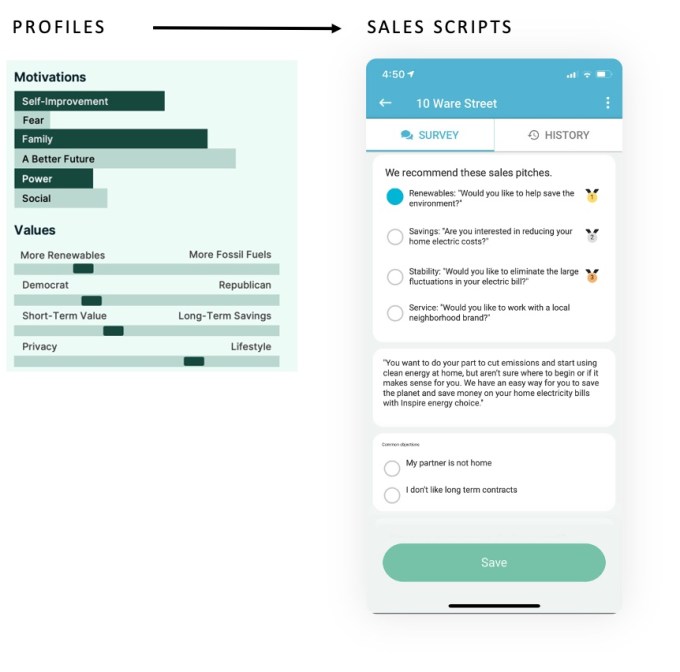The tech industry has long grappled with an overwhelming lack of diversity among employees, executives, venture-backed founders, venture capital firms and board members. And despite recent efforts to increase diversity throughout the industry, tech still remains predominantly white and male.
Over the years, many have argued that the lack of diversity in tech is caused by a so-called pipeline problem: that there is little diversity in tech because there is not enough qualified talent from diverse backgrounds.
Today, there is well-established data that proves the lack of diversity in tech cannot be attributed to a pipeline problem, Uber Chief Diversity Officer Bo Young Lee told TechCrunch.
“If we want to claim that it’s a pipeline issue, we would first have to claim that we’ve hired what is available in the pipeline,” she said. “It’s not a pipeline issue as much as it is a recruiting process challenge.”
But the notion that there is a pipeline problem, despite the evidence showing there is not one, at least partly remains in the public psyche. Courri Brady, director at diversity, equity and inclusion consulting firm Paradigm, recognizes there are still some folks who have yet to rid themselves of the myth of the pipeline problem.
“There’s still a perception to some degree that there’s a pipeline problem within some companies that I’m personally supporting,” Brady told TechCrunch. “But there are a couple of dynamics at play.
One of those dynamics, Brady said, pertains to recruiting processes, which are relatively fixed inside tech companies.
If companies are convinced only certain schools, programs or other companies are the only places that produce good talent, and those people are not diverse, Brady said, “then those issues are going to perpetuate themselves.”
Dr. Joy Lisi Rankin, a research lead for gender, race and power in artificial intelligence at the AI Now Institute, is actively researching the history of the pipeline problem. In the next six months, the plan is to publish it as a report and potentially turn it into a book. Rankin was kind of enough to give TechCrunch a sneak peek into some of her research so far.
“The very high-level view is, people have been talking about a pipeline problem in some form since the seventies,” Rankin told me. “And before that, often, it was like a quote, manpower problem, by focusing on who has PhDs or master’s degrees in a field or who has elite jobs in a field. But that focus is always on individuals. It’s on tracking people, not institutions and not structures. So this is why I think it continues to be a convenient excuse for a host of sins, because talking about a pipeline makes it seem as if all things are equal in the United States, and we just have to find a way to keep people in. But the truth is, when we think about a STEM pipeline, we don’t talk about the fact that education in the United States is by no means equal from birth onwards.”
There are, of course, programs like Black Girls Code, Girls Who Code, Code.org and others that aim to step in to help introduce kids to technology. But these issues go deeper than just STEM education, Rankin said.
“For a long time, it was you had to have a certain SAT score to get in somewhere or a certain GRE score for graduate school,” Rankin said. “But we know, literally decades of research have shown SATs correlate in no way with how you’re going to do in college or how you might be as a student, but correlate everything with how wealthy your family is, which also then correlates with race and access to all other sorts of things like tutoring and etc. But that same time of credentialing pops up time and time again.”
The entire education system has historically functioned as a gatekeeper to knowledge through credentialing, she said.
“Credentialing is a form of gatekeeping and protecting who has access to power and who doesn’t,” she said. “There’s this term that I think was coined a few years ago about how Silicon Valley tech companies are not meritocracies, but ‘mirrortocracies,’ so you’re hiring people who have similar credentials to you, had the same sort of schooling, etcetera. But that doesn’t necessarily mean they’re more qualified. We know that all sorts of diversity often yields better work and better outcomes in a variety of situations, but focusing on certain types of quote, qualifications and credentials, don’t reflect that.”
Beyond education, however, there are also other pipelines at play. There’s the cradle to prison pipeline, which I’ve referred to as “the other pipeline,” as well as “the revolving door of H1B visa workers who are treated with lower status,” Rankin said.
“The pipeline is a way to silo all of that out and say, ‘we just need to get more Black women in tech,’ as opposed to saying, ‘actually, these companies are and have been racist and white supremacist and misogynist, and it’s those institutions and larger societal and global capitalist structures that need to change.”
What the idea of the pipeline also doesn’t capture is the fact that women were often tasked with doing manual computing in the 1950s and sixties, Rankin said. Back then, many considered coding to be a woman’s job.
“And it was only as it became clear how socially and economically and politically important that computing would be, that the profession over a decade or so became masculine. […] It clearly shows that as certain types of computing and programming became culturally valuable, more of those jobs that were better paying went to men. And it wasn’t that the work was any different but that because there was a prestige shift, there was also a shift in how it was gendered.”
Those are just some of the ideas Rankin will outline in her research paper, which she hopes will help to change the conversation happening in the tech industry about diversity, equity and inclusion. Instead of relying on the pipeline as an excuse, Rankin said she hopes the tech industry will focus more on inequities, structural racism, misogyny and how micro-inequities can lead to macro problems.
Rankin’s report will also have some recommendations, such as working to make education truly equitable and addressing surveillance, as well as the school to prison pipeline. She also believes salary data should be public information.
“As soon as we have more transparency around salaries, we can have more meaningful conversations,” she said.
Last week, former Pinterest employee Ifeoma Ozoma introduced legislation with the backing of California State Senator Connie Leyva to empower those who experience workplace discrimination and/or harassment. The Silenced No More Act (SB 331) would prevent the use of non-disclosure agreements in workplace situations involving all forms of discrimination and harassment.
“That’s certainly a step in the right direction,” Rankin said.
The proposed bill would expand the current protections workers have through the Stand Together Against Non-Disclosures Act, also authored by Leyva, that went into effect in 2019. Ozoma, along with former co-worker Aerica Shimizu Banks, came forward with claims of both racial and gender discrimination last year. They eventually settled with Pinterest, but the STAND Act technically only protected them for speaking out about gender discrimination. This new bill would ensure workers are also protected when speaking out about racial discrimination.
“It would be huge and not just for tech, but for your industry as well,” Ozoma told me earlier this week. “I believe that we don’t have real progress unless we approach things intersectionally and that’s the lesson from all of us.”
Meredith Whittaker, AI Now Faculty Director and co-organizer of the 2018 Google walkout, said this type of legislation absolutely necessary.
“From a structural perspective, it’s really evident we’re not going to change toxic, discriminatory tech environments without naming the problems,” Whittaker told TechCrunch. “We have decades of failed DEI PR, decades of people blaming the pipeline and decades of brilliant people like Ifeoma, Aerica and Timnit being harassed and pushed out of these environments. And oftentimes, people aren’t able to speak about their experiences so that the deep toxicity of these environments — the way it’s built into the structural operating procedures of these companies and workplaces — doesn’t get aired.”
There also needs to be more transparency around hiring and corporate recruiting, Rankin said. Pinterest, which was one of the first companies to set goals around diversity, disclosed last year that its hiring rates for women engineers, underrepresented minority engineers and underrepresented employees. But there’s room for even more transparency, like how many new hires come from those programs.
In Uber’s most recent diversity report, Uber talks about university recruiting, diversifying internship programs and more but the company’s reported data does not disclose how many hires came from those efforts.
Uber’s Bo Young Lee says the company is working on better tracking its top-of-funnel pipeline to ensure it’s representative of the available talent. This is called the Mansfield rule, which takes the Rooney Rule a couple of steps further. If Uber gets this right, then 14% of its recruiting pipeline would be Black and Hispanic, Lee said, citing a 2016 New York Times article about engineering graduates. It’s early days for Uber’s implementation of the Mansfield Rule, but the plan is to publish some of the data, Lee said. Though, she hasn’t yet decided exactly what that will look like.
Meanwhile, in Google’s latest diversity report, the company outlined how more than 1,300 women in Latin America were trained on web development and UX design with the help of Google volunteers and a Google.org grant. As a result, Google said 75% of the women who participated found jobs in tech. What Google did not mention, however, was how many women found jobs at Google.
In that same report, Google mentioned that it hired from 15 Historically Black College and Universities (HBCUs), 39 Hispanic-serving institutions and nine women’s colleges in the U.S. That all sounds good, but in December, former Google diversity recruiter April Curley came forward about how she was fired after she “became aware of all the racist shit put in place to keep black and brown students out of their pipeline.”
“We have a large team of recruiters who work incredibly hard to increase the hiring of Black+ and other underrepresented talent at Google, including a dedicated team that partners and strengthens our relationships with HBCUs,” a Google spokesperson said in a statement to TechCrunch. “This work is critical – in 2019 we welcomed graduates from 19 HBCUs and over the past decade, we’ve expanded our recruiting efforts to more than 800 schools. At the same time, we are absolutely committed to maintaining an inclusive and supportive workplace. We don’t agree with the way April describes her termination, but it’s not appropriate for us to provide a commentary about her claims.”
Despite what may have happened at Google or what happens at other tech companies, it’s the overall lack of transparency around recruiting processes with which Rankin takes issue.
“It’s its own form of pipeline that is problematic and inequitable,” Rankin said. “[…] But how do you break down the scale of the problem so that it’s not just focusing on individuals.”
Rankin does not work inside tech companies and can’t speak to the inner workings of DEI departments, but said she does believe there are good people who are trying to make things better.
“I think this is a larger problem of education and perspective and how you can get to a point where you have an engineering degree or you get hired by a tech company and you’ve never had to think about race as a deeply rooted historical, structural problem,” she said. “[…] I think it’s convenient to disregard some of these larger issues and at some point, ignorance isn’t an excuse, especially given the events of the past few years.”





